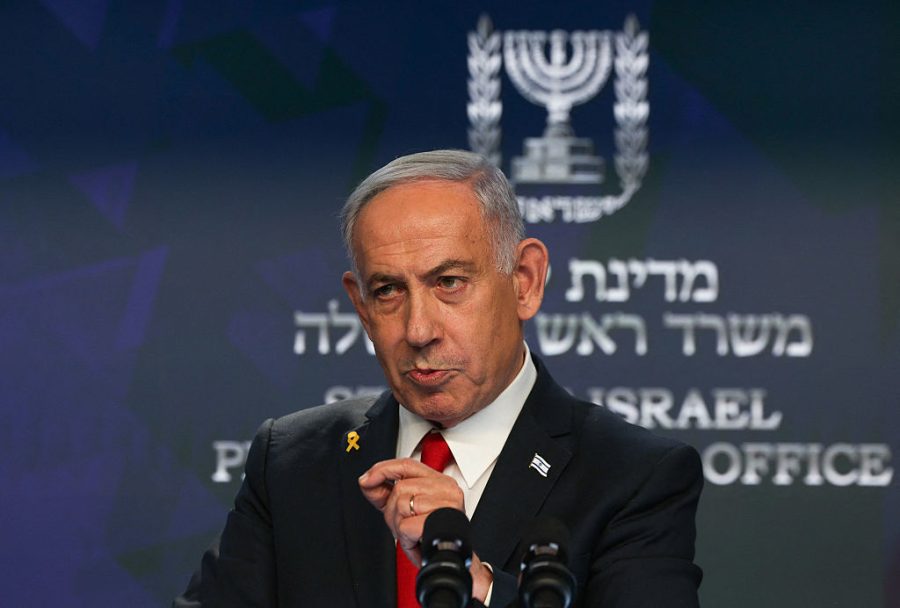For years, Israel has been compared – sometimes unjustly – to South Africa. This comparison stems from the concept of apartheid. In South Africa, racial segregation was between whites and blacks; in Israel, it’s the discrimination against Palestinians in the West Bank and Gaza.
Today, however, the validity of the comparison between Israel and South Africa is even more relevant in another aspect: the international isolation and economic sanctions that were imposed on the white minority regime in Pretoria, which ultimately brought about its downfall, are a warning of the future Israel could face.
A mix of stubbornness, rigidity, and dogmatism is at the root of Trump’s fatigue with Netanyahu
Israel is steadily heading down this path. For years, the international community has considered imposing economic and military sanctions on Israel due to the construction of Jewish settlements in the West Bank and the moves to deprive Palestinians of their basic rights. But aside from strong declarations of intent, the steps taken so far to actually impose any sanctions have been small and negligible: short-term embargoes on certain weapon components and efforts to brand the exports of Israeli companies operating in the occupied territories. Israeli governments have, historically, not been particularly alarmed and operated under the assumption that, as the saying goes, ‘the dogs bark and the caravan moves on’.
However, this week marked a significant shift. The governments of Canada, the UK, and France issued an unprecedentedly harsh warning. They threatened action against Israel unless the fighting in Gaza stops and more humanitarian aid is allowed in. Within a day, the first sanction was imposed. On Tuesday, British Foreign Secretary David Lammy announced that the UK had decided to suspend trade talks with Israel.
Even more alarming and dangerous for the Jewish state is the trend emerging in US President Donald Trump’s attitude towards Israeli Prime Minister Benjamin Netanyahu and his government. The Washington Post reported this week that senior officials in the American administration warned that they would ‘abandon’ Israel if it does not stop the war and allow humanitarian aid in for Gaza’s starving population. US Ambassador to Israel Mike Huckabee responded to the report with a single word: ‘Nonsense.’
Be that as it may, there are too many signs indicating that Trump –who is shaping a new world order through so-called ‘commercial diplomacy’ and has little tolerance for conflicts – is fed up with Netanyahu’s evasiveness and entrenchment.
The most prominent sign of this is the series of commercial and military agreements Trump recently signed with Saudi Arabia, Qatar, and the United Arab Emirates during his visit there last week. Their scale – worth about $1 trillion (£740 billion) – is unprecedented and staggering.
The package includes a $600 billion (£444 billion) commercial deal with Saudi Arabia and another $142 billion (£105 billion) in US arms sales to the kingdom. A similar commercial deal worth $243 billion (£180 billion) was signed with Qatar, in addition to the purchase of advanced Boeing aircraft for $96 billion (£71 billion). The UAE will fund the establishment of an innovation centre and scientific databases for the development of artificial intelligence with an investment of $14.5 billion (£10.7 billion).
Through this, the Trump administration is abandoning the traditional approaches that have governed international relations since the end of the second world war – even after the collapse of Soviet communism and its satellites in Eastern and Central Europe. Those approaches focused on traditional diplomacy and security concepts as a way to resolve crises and promote national interests.
It seems Trump has lost patience with the military involvement policies of his predecessors – using force in global conflicts to project American power and influence. Instead, he is promoting an approach of reinforcing and preserving the US as a superpower through commercial doctrine. In fact, the changes Trump is implementing are not reform, adjustment, or deviation – they are a revolution that will impact the world even after he leaves the White House.
His dramatic meeting in Saudi Arabia with Syrian president Ahmed Al-Sharaa clearly illustrates his approach in the Middle East. More than a decade ago, Al-Sharaa was imprisoned by the US in Iraq, and until he seized power in Damascus five months ago, he was considered the leader of a jihadist terrorist organisation. One can only imagine that if Hamas leader Yahya Sinwar in Gaza were still alive, Trump might not have hesitated to meet with him as well.
Trump’s willingness to ignore Al-Sharaa’s terrorist past, to turn a blind eye to terror organisations in Pakistan (to the dismay of Indian Prime Minister Narendra Modi), and to approve direct talks between his envoys and Hamas, stems from his view of the economic potential of war-torn and crisis-stricken nations. In his eyes, Pakistan, Syria, and even Gaza have opportunities to emerge from crises, poverty, backwardness, and destruction.
But Trump is also impatient, has a short attention span, and quickly loses interest. If he sees that his international business counterparts are not keeping up with his pace, he becomes tired and cuts off contact with them.
Ukraine and its president Volodymyr Zelensky are a prime example. Although Trump seeks to end wars globally and establish peace and stability – possibly with the chance to win a Nobel Peace Prize in mind – he is unwilling to waste his time with foot-dragging leaders.
It appears that a mix of stubbornness, rigidity, and dogmatism is at the root of Trump’s fatigue with Netanyahu and his growing estrangement from him. Trump and his aides are signalling a message: if Netanyahu doesn’t join the global initiatives and the new Middle East they are building, that’s his problem. He will be left alone with his own blinding isolation and that of Israel under his leadership.
Netanyahu has always claimed to understand economics. But ironically, at a time when the White House is occupied by a president championing a commercial doctrine, Netanyahu is fleeing from the opportunity and is pulling Israel into unprecedented decline. Instead of aligning with the economic powerhouses of Saudi Arabia and the Emirates, Netanyahu – thanks to his corruption trials and his obsession with clinging to power – is dragging Israel into international isolation, turning it into a pariah state akin to South Africa. Once a country considered the region’s top security power, Israel is becoming a secondary player, increasingly irrelevant in Trump’s game and on the global stage.
Former prime minister Ehud Barak once warned of a ‘diplomatic tsunami’ facing messianic Israel seeking to annex the Palestinian territories. Netanyahu, he said, ‘was pushing Israel into a corner from which the old South Africa’s deterioration began’. The waves of this tsunami are now lapping at Israel’s shores.







Comments